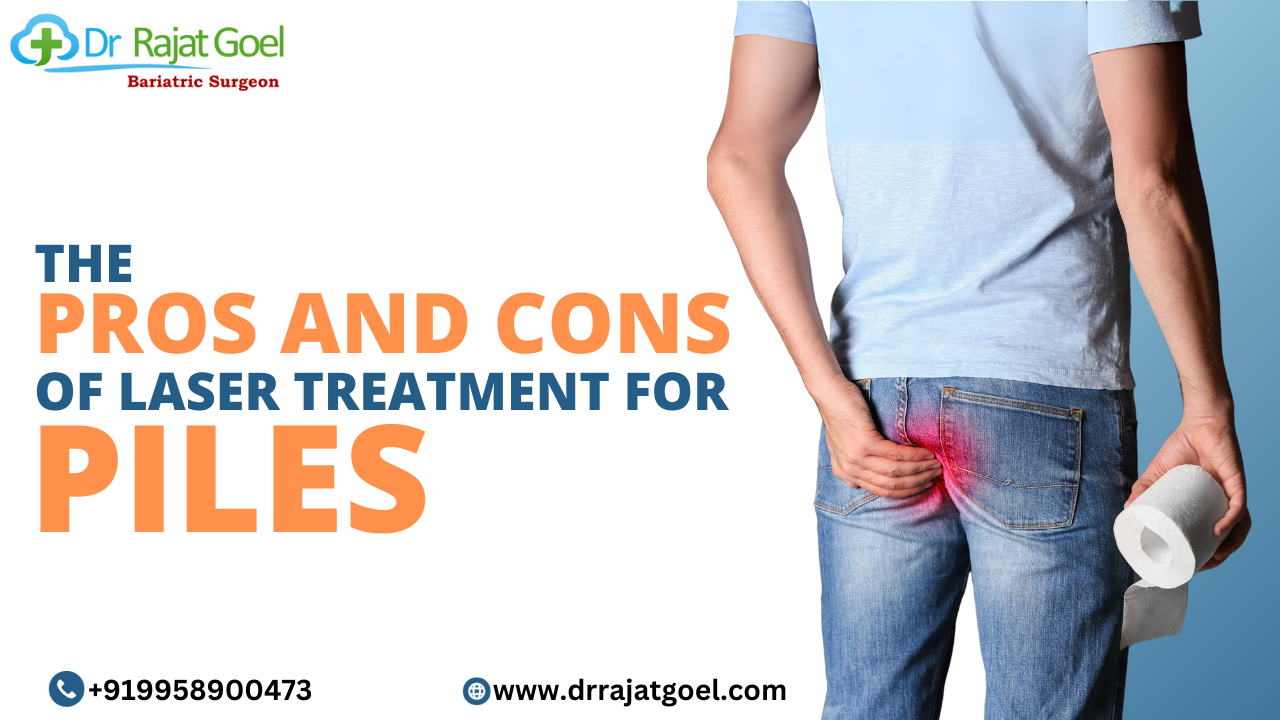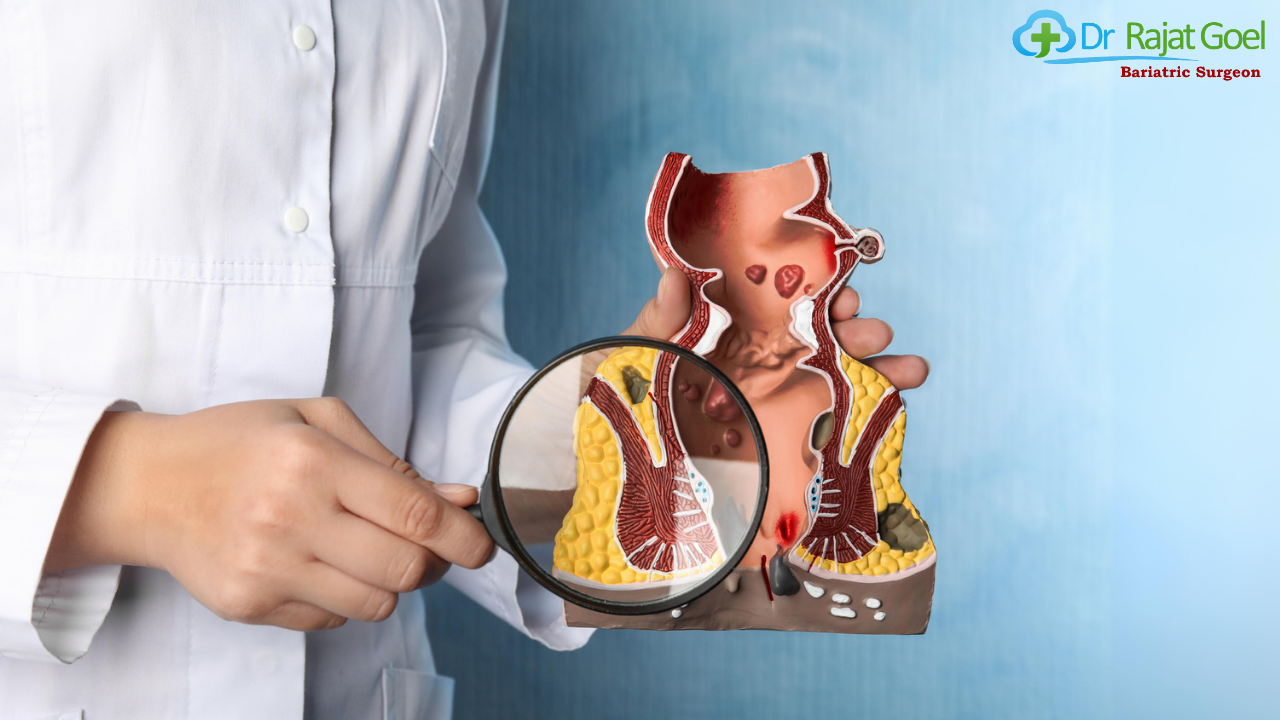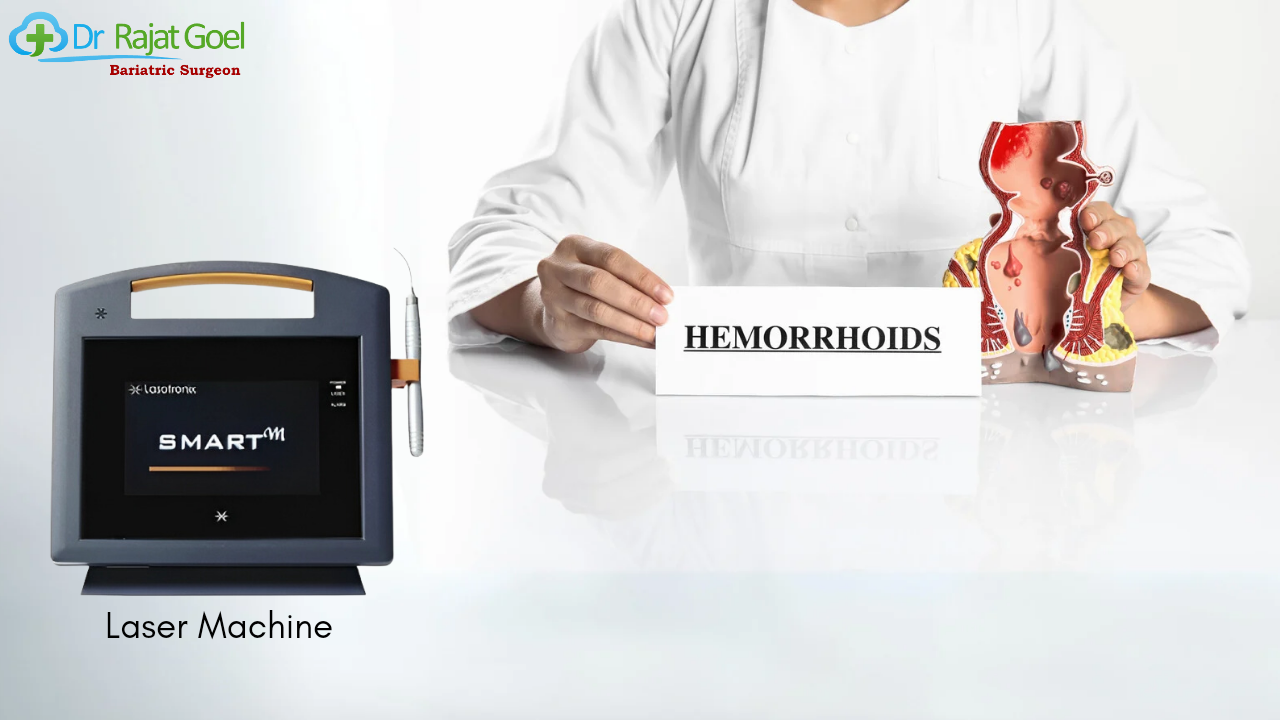
Every year, nearly 10 million individuals in India grapple with the distress of piles, a condition that spreads swiftly due to stress, sleeplessness, constipation, and the burgeoning preference for fast food in the sedentary lives of city dwellers.
Piles are swollen, bulging blood vessels, also known as hemorrhoids, that form in and around the anus, infecting the lower rectal region and developing internally and externally.
Internal hemorrhoids reside within the anus, while external ones are in the lower rectum. They’re classified into four types based on severity:
- First degree – characterized by bleeding without prolapse
- Second degree – with prolapse that reduces spontaneously
- Third degree – prolapse requiring manual reduction
- Fourth degree – permanent prolapse
 Causes
Causes
Piles occur when the blood vessels around the lower rectum or anus undergo severe strain due to various benign habits like an unhealthy diet or prolonged sitting. Conditions escalating the risk include:
- Diarrhea
- Constipation
- Heavy weightlifting
- Pregnancy
- Obesity
- Anal intercourse
- Extended periods on the toilet seat
Symptoms
Symptoms of piles vary depending on type and occurrence, including:
- Tender lumps around the anus
- Anal itching
- Anal pain
- Rectal bleeding (for internal piles)
- Piles protruding from the anus
Treatment Options
Treatment varies by severity:
- Mild symptoms can be managed with home-based remedies like hydration, fiber-rich diets, and avoiding straining during bowel movements.
- Over-the-counter medications for pain relief and stool softening.
- Consult a doctor if pain persists.
- Quick treatment options include medicines, ointments, and suppositories.
- Surgery is recommended for larger or serious hemorrhoids.
 Laser Hemorrhoid Surgery
Laser Hemorrhoid Surgery
Laser treatment is a minimally invasive outpatient procedure utilizing a fine laser beam to remove tissue while preserving surrounding healthy tissues. Laser surgery for piles is favored for its multiple benefits and is particularly effective for acute symptoms.
Conventional surgeries come with several drawbacks, such as longer healing times, post-surgical pain, recovery complications, and extended recovery periods.
Advantages of Laser Surgery
Laser treatment for piles offers several advantages:
- Reduced Pain: Laser treatment involves minimal incisions, resulting in significantly less pain compared to conventional open surgeries.
- Safety: It’s a safer and quicker surgical option without the use of smoke, sparks, or steam, minimizing risks associated with conventional procedures.
- Minimal Bleeding: Laser beams seal blood vessels, minimizing blood loss and the risk of infection.
- Swift Procedure: The surgery duration is short, often allowing patients to return home the same day.
- Quick Recovery: Healing is rapid due to reduced blood loss and minimal tissue damage, enabling a quicker return to normalcy.
- Simplicity: The surgery is technically precise and offers a higher success rate compared to manual open surgeries.
- Fewer Follow-ups: Post-surgery visits are minimal due to reduced risk of complications.
- Lower Recurrence: There’s a low risk of piles reoccurring after laser surgery due to minimal tissue trauma.
Disadvantages of Laser Surgery
However, laser treatment for piles does have drawbacks:
- Cost: The procedure requires specialized, costly equipment available in only a few hospitals.
- Surgeon Training: Surgeons must be adequately trained to perform the surgery to avoid complications.
- Limited Equipment: Availability of laser fiber can be restricted for certain cases.
- Bleeding Risks: In rare cases, uncontrolled bleeding and tissue damage may occur.
- Fibrosis: Laser beams can cause tissue scarring leading to potential future complications.
- Anesthesia Challenges: Anesthesia effectiveness during surgery may lead to complications upon awakening.
 When to Seek Medical Attention?
When to Seek Medical Attention?
Consult a doctor if experiencing rectal bleeding while passing stool. If home remedies fail to alleviate symptoms after a week, immediate medical attention is necessary. Prompt screening and diagnosis are crucial to rule out severe conditions.
Emergency care should be sought for significant rectal bleeding, fainting, or dizziness.
Prevention
Preventing piles involves simple habits often overlooked, including:
- Consuming high-fiber foods like whole grains, vegetables, and fruits.
- Adequate fluid intake.
- Considering fiber supplements.
- Avoiding straining during bowel movements.
- Not delaying the urge to defecate.
- Regular exercise and avoiding prolonged sitting.
Conclusion
If experiencing severe piles symptoms, consult a proctologist. Do not ignore signs like burning, itching, or strain during bowel movements, especially chronic constipation symptoms. Immediate hospital visits are essential for such symptoms.
Hindivine Healthcare in New Delhi emphasizes minimal invasive laser procedures for proctology, with experienced surgeons and comprehensive diagnostic facilities on-site for accurate diagnosis and treatment.











Dt. Shivani Pathania
November 25, 2023 at 1:56 pmNice information. Need more of this type of topics.
Dt. Shivani Pathania
November 25, 2023 at 1:56 pmNice information. Need more of this type of topics.
Nidhi Sharma
November 25, 2023 at 1:57 pmNice information.
ashwani
February 20, 2024 at 7:30 amvery Nice Information